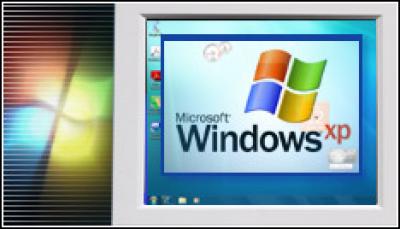eWEEK Readers Stick With Windows XP

Linux beats Windows 7 into second place in our reader poll, behind the venerable Windows XP. Next – tell us your cloud plans
Windows XP scored nearly 44 percent in a poll of which desktops eWEEK readers use to run their business. Microsoft’s Windows 7 came in behind Linux, while Vista languished with a handful of votes in the “other” category.
Microsoft had a difficult time weaning any users away from Windows XP onto the much-hated Vista system, but Windows 7 was supposed to make up for lost time. In this non-statistical sample of eWEEK Europe’s readers, it doesn’t look like it has succeeded.
XP leads after nearly ten years
 Launched in 2001, Windows XP leads amongst eWEEK’s readers, with 44 percent of a poll of nearly 100 readers choosing the popular operating system. This result tallies with market research from early this month, which gave Windows XP a market share of more than 60 percent.
Launched in 2001, Windows XP leads amongst eWEEK’s readers, with 44 percent of a poll of nearly 100 readers choosing the popular operating system. This result tallies with market research from early this month, which gave Windows XP a market share of more than 60 percent.
Microsoft has had to extend the life of XP, after users staged a campaign to maintain the right “downgrade” from Windows Vista or Windows 7, to XP, which is tried and tested in their organisation.
Vista languished well behind Windows 7 in our poll. Windows 7 scored a respectable 20 percent, while Vista only scored a couple of readers.The figure is not very impressive given Microsoft’s major marketing push designed to persuade users to upgrade. In fact, its popularity is pretty much equal with the venerable windows 2000, also in the “other” category.
Linux, however, is ahead of Windows 7, on 24 percent. This may be a surprise, as Linux does not often show up well on market share comparisons – simply because Linux licences are not purchased so its share can’t be measured in the same way.
Microsoft’s troubles and the cash crisis caused by the recognition may be driving users towards Linux. Other factors making it a stronger option include the fact that many applications are migrating into the web browser and the cloud, so the availability of applications is not an issue. There is also a good choice of Linux operating systems, with SUSE and Ubuntu.
One eWEEK Reader, Vladimir, said that his company started the transition from Windows XP to Linux systems two years ago. “At first the main reason was economic, as it enabled us to save a lot of money we could then redirect into research and training our employees,” he said. “Now we are also starting to see other benefits of Linux and open source in general, like independance from software vendors and freedom to reuse and customite the code.”
Also, Linux users and providers are beginning to get militant, and in some cases (for instance in Argentina and Switzerland) are prepared to challenge Microsoft over alleged monopolistic practices.
Next survey: Do You Rate The Cloud?
In our new survey (on the left of the site) we want you to put us out of our misery over cloud computing.
 For a couple of years now, a concerted PR effort has presented hosted infrastructure and applications in the cloud as the way forward. If you believe the most gung-ho predictions, your entire IT department will be replaced by outsourced services in the cloud, and IT staff will become brokers pulling these services together for internal use.
For a couple of years now, a concerted PR effort has presented hosted infrastructure and applications in the cloud as the way forward. If you believe the most gung-ho predictions, your entire IT department will be replaced by outsourced services in the cloud, and IT staff will become brokers pulling these services together for internal use.
Meanwhile, however, some say the cloud is not secure enough, and others point to the fact that many software vendors still can’t price their software right for it (yes, we mean Oracle).
We know, we know. There’s many different clouds, including public and private, infrastructure, platform and application. There’s Linux in the cloud, and Windows in the cloud. It’s difficult to define it.
Forget those details for our latest quick-and-dirty survey. Take a broad definition, and please tell us whether you are using the cloud – and if so, is it experimental, strategic… or actually, the preferred option for all your services.